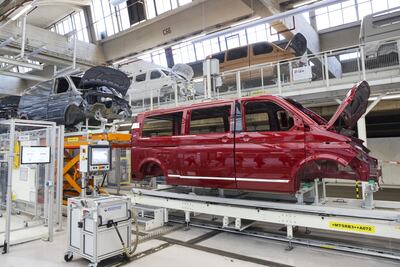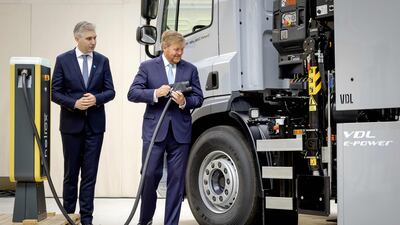The Netherlands has been named the best European country for environmentally-conscious drivers, thanks to its extensive network of electric charging facilities and relatively mild traffic.
Rankings produced by travel company Kayak showed the Netherlands with a wide lead over Germany, Britain and Belgium in availability of charging stations for electric cars.
And in a country of cyclists, there are not so many cars on Dutch roads and traffic jams are less of an issue than in some neighbouring countries, meaning lower energy use and fewer emissions from petrol and diesel cars.
Iceland came second in the table, benefiting from its relatively clean air, with third-placed Estonia also scoring well on air pollution.
At the other end of the scale, countries marked down for a lack of charging stations included Lithuania, Bosnia-Herzegovina, Serbia and Greece.
Germany was the winner in a general European “road trip index” because of its safe roads, high number of campsites and public bathrooms, and many Unesco heritage sites for tourists to visit.
But it lost out to the Netherlands in the sustainability category with the cost of charging an electric car in Germany ranked among the highest in Europe, while Dutch prices compared more favourably.
“Road trips are a flexible, comfortable and relatively economical way to travel. At the same time, the majority of travellers want a sustainable holiday,” said Laure Bornet, a general manager at Kayak.

Separate rankings in February showed the Netherlands and Sweden registering the highest share of electric vehicles in the European Union, although non-EU members Norway and Iceland were further ahead.
A Dutch delegation at UN climate talks in February said that the charging network in the Netherlands would achieve nothing if it was not replicated in other countries.
It called for a single card, such as a bank card, to grant access to any charging station in the world under what it suggested could be UN oversight.
Electric vehicle sales have risen dramatically in recent years as environmental awareness grows and car makers look to take a slice of the booming market, but progress can be held up by a lack of charging infrastructure.
Last month, the EU's 27 members agreed that zero-emission engines would become mandatory for new cars from 2035, although some of the details have yet to be worked out.
The issue has caused controversy in Germany, known for its flagship car industry, where some politicians want cleaner fuels for combustion engines to remain in the picture along with electric vehicles.


